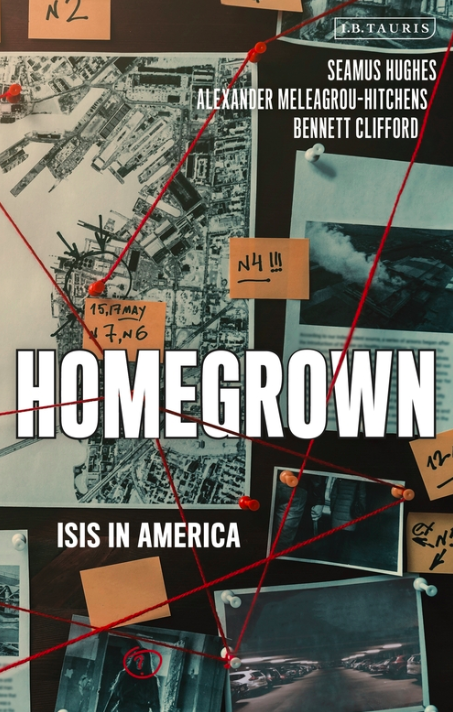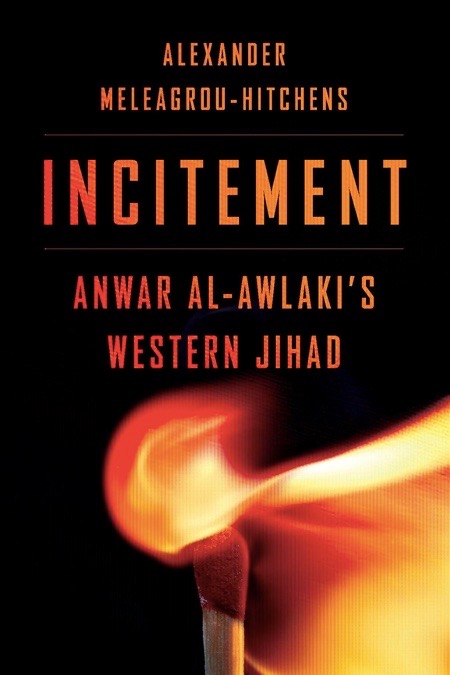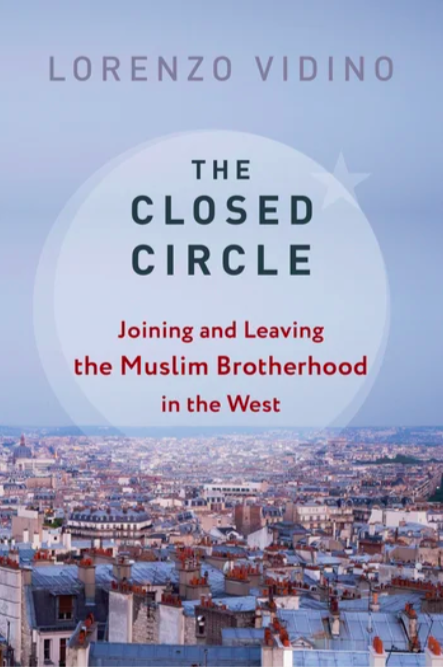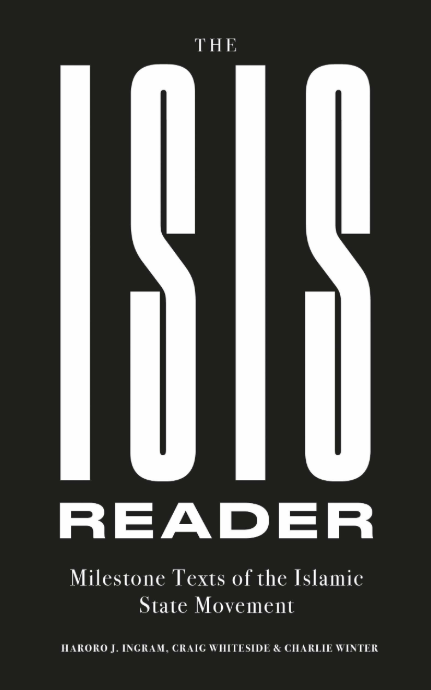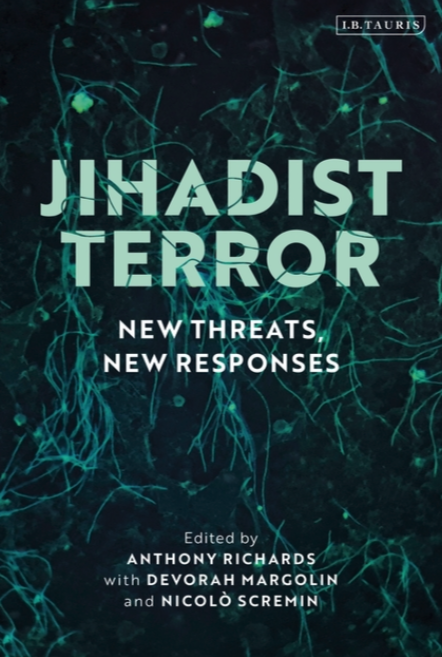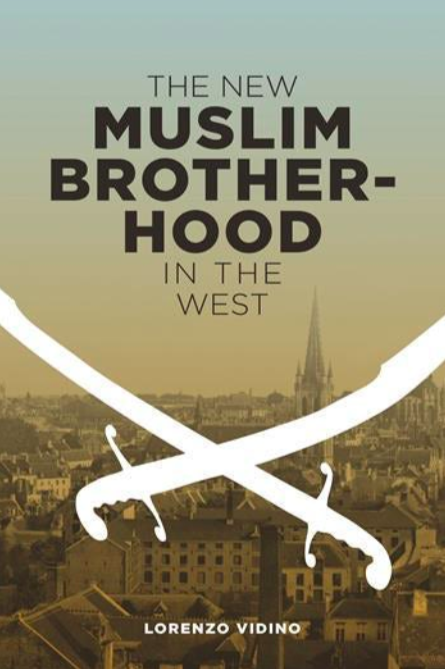Book Publications
Homegrown: ISIS in America
Authored by Alexander Meleagrou-Hitchens, Seamus Hughes, and Bennett Clifford
October 2020
How big is the threat posed by American ISIS supporters? How many Americans have joined ISIS and how many want to return to the United States? Compared to participation by Americans in other jihadist groups, the scale of American involvement in jihadist activity today is unprecedented. This book, from one of the leading counter-terror centres, draws on first-hand interviews with former American Islamic State members and law enforcement officials who tracked them, and includes detailed analysis of the court cases against them and their social media presence. Homegrown reveals how and why ISIS was able to radicalize and recruit a new generation of jihadist sympathizers in America.
Incitement: Anwar al-Awlaki's Western Jihad
Authored by Alexander Meleagrou-Hitchens
May 2020
Anwar al-Awlaki was, according to one of his followers, “the main man who translated jihad into English.” By the time he was killed by an American drone strike in 2011, he had become a spiritual leader for thousands of extremists, especially in the United States and Britain, where he aimed to make violent Islamism “as American as apple pie and as British as afternoon tea.” Alexander Meleagrou-Hitchens draws on extensive research among al-Awlaki’s former colleagues, friends, and followers, including interviews with convicted terrorists, to explain how he established his network and why his message resonated with disaffected Muslims in the West.
A native of New Mexico, al-Awlaki rose to prominence in 2001 as the imam of a Virginia mosque attended by three of the 9/11 hijackers. After leaving for Britain in 2002, he began delivering popular lectures and sermons that were increasingly radical and anti-Western. In 2004 he moved to Yemen, where he eventually joined al-Qaeda and oversaw numerous major international terrorist plots. Through live video broadcasts to Western mosques and universities, YouTube, magazines, and other media, he soon became the world’s foremost English-speaking recruiter for violent Islamism. One measure of his success is that he has been linked to about a quarter of Islamists convicted of terrorism-related offenses in the United States since 2007.
Despite the extreme nature of these activities, Meleagrou-Hitchens argues that al-Awlaki’s strategy and tactics are best understood through traditional social-movement theory. With clarity and verve, he shows how violent fundamentalists are born.
The Closed Circle: Joining and Leaving the Muslim Brotherhood in the West
Authored by Lorenzo Vidino
March 2020
The Muslim Brotherhood in the West remains a mysterious entity. In The Closed Circle, Lorenzo Vidino offers an unprecedented inside view into how one of the world’s most influential Islamist groups operates. He marshals unique interviews with prominent former members and associates from Europe, the United Kingdom, and North America, shedding light on why and how people join and leave Western outfits of the Muslim Brotherhood.
Drawing on these striking personal accounts, Vidino weaves together the experiences of individuals who participated in and later renounced Brotherhood groups. Their perspectives provide a wealth of new information about the Brotherhood’s secretive inner workings and the networks that connecting the small yet highly organized cluster of Brotherhood-influenced groups. The Closed Circle examines the tactics the Brotherhood uses to recruit and retain participants as well as how and why individuals make the difficult decision to leave. Through the stories of diverse former members, Vidino paints a portrait of a highly structured, tight-knit movement. His unprecedented access and understanding of the group’s activities and motivations has significant policy implications concerning Western Brotherhood organizations and also illuminates the underlying mechanisms found in a range of extremist groups.
The ISIS Reader: Milestone Texts of the Islamic State Movement
Authored by Haroro Ingram, Craig Whiteside, and Charlie Winter
February 2020
In the wake of its ‘Caliphate’ declaration in 2014, the self-described Islamic State has been the focus of countless academic papers, government studies, media commentaries and documentaries. Despite all this attention, persistent myths continue to shape—and misdirect—public understanding and strategic policy decisions. A significant factor in this trend has been a strong disinclination to engage critically with Islamic State’s speeches and writings—as if doing so reflects empathy with the movement’s goals or, even more absurdly, may itself lead to radicalisation.
Going beyond the descriptive and the sensationalist, this volume presents and analyses a series of milestone Islamic State primary source materials. Scholar-practitioners with field experience in confronting the movement explore and contextualise Islamic State’s approach to warfare, propaganda, leadership, and governance. Telling the ‘inside story’ of the Islamic State movement, they examine the factors behind its dramatic evolution from a wandering ‘band of brothers’ led by Abu Musab al-Zarqawi to Islamic State in Iraq then failed proto-state by 2010, standard-bearer of global jihadism in 2014 to besieged insurgency in 2019.
The ISIS Reader will help anyone—students and journalists, military personnel, civil servants and inquisitive observers—not only to better understand the evolution of Islamic State and the dynamics of asymmetric warfare, but also to see the importance of primary sources to this endeavour.
Jihadist Terror: New Threats, New Responses
Edited by Anthony Richards, Devorah Margolin, and Nicolò Scremin
August 2019
The past 18 months have seen a radical increase in incidents of jihadist terrorism within the United Kingdom – from the Manchester Arena attack, to the Houses of Parliament, to London Bridge. As a result, there are renewed calls for a high-level national conversation about the causes of, and the responses to, this particular terrorist problem.
This book identifies policy and research gaps from an evidence-based perspective – it analyses what we know, what we don't know and what we need to know in relation to understanding and countering the jihadist terrorist threat. It provides readers with a synthesis of the knowledge and evidence that exists on each of the key topic areas, representing a distinctive and valuable resource for policymakers, academics and students. The contributors to the volume are leading international and national experts, from both the scholarly and policy-making communities, who are ideally placed to comment on the question of jihadist terrorism and the future of the threat in the UK.
The New Muslim Brotherhood in the West
Authored by Lorenzo Vidino
August 2010
In Europe and North America, networks tracing their origins back to the Muslim Brotherhood and other Islamist movements have rapidly evolved into multifunctional and richly funded organizations competing to become the major representatives of Western Muslim communities and government interlocutors. Some analysts and policy makers see these organizations as positive forces encouraging integration. Others cast them as modern-day Trojan horses, feigning moderation while radicalizing Western Muslims.
Lorenzo Vidino brokers a third, more informed view. Drawing on more than a decade of research on political Islam in the West, he keenly analyzes a controversial movement that still remains relatively unknown. Conducting in-depth interviews on four continents and sourcing documents in ten languages, Vidino shares the history, methods, attitudes, and goals of the Western Brothers, as well as their phenomenal growth. He then flips the perspective, examining the response to these groups by Western governments, specifically those of Great Britain, Germany, and the United States. Highly informed and thoughtfully presented, Vidino's research sheds light on a critical juncture in Muslim-Western relations.


